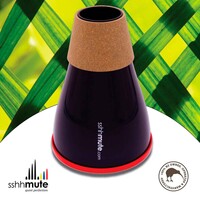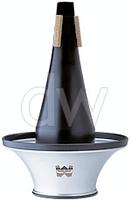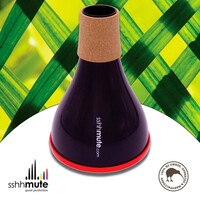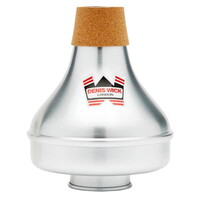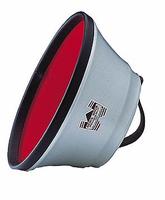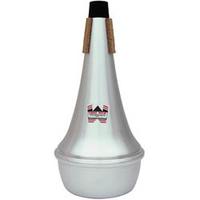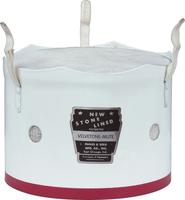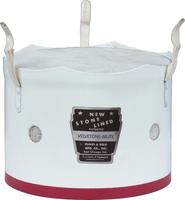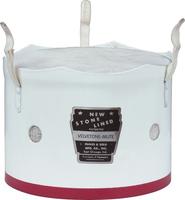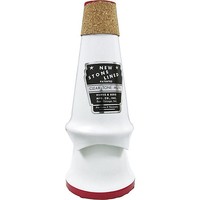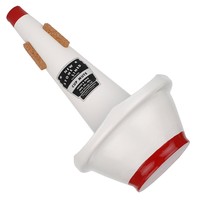Mutes trombone
The different types of mutes separate each other on form and material. The use of mutes makes it possible to vary the instruments sound and loudness. Further down, you will find a full description of the different types of mute and what they are used for.
Straight mutes make the instruments sound brighter and ads a nasal element to that sound. It is often used in orchestras, mainly by classical musicians and brass band musicians.
Cup mutes are often used within the jazz genre. It is basically a straight mute with a collar. The collar adds a softer and more complete sound to the instrument, then the straight mute does.
Bucket mutes are more or less a bucket full of cotton wool, or similar material, that is put in front of the bell to ensure a softer and more laid back sound. Is mainly used within the jazz genre.
Harmon mutes (also known as "bubble mute" or "wah wah") is a mute similar to a straight mute in shape but with a hole, formed as a bubble at the bottom. It is typically made out of aluminum/cobber with cork around the neck to ensure that all air and sound comes out of the hole. The hole has a steam that can be adjusted to ensure the perfect sound. As an extra effect, one can put his/her hand in front of the hole add thereby create the "wah wah" sound.
Plunger mutes is generally a tool used when playing big band music from the 1920s. When placing the plunger in front of the bell, one can create the "wah wah" effect just as a harmon mute can, but without the nasal sound.
Practice mutes are the tool you need if you want to practice almost silent. A practice mute is the shape as a straight mute but has closing cork or rubber around the neck to ensure that all are and sound goes inside the mute. This does produce more resistance with some practice mutes, which can affect intonation but also create a larger tone when playing without a practice mute.

